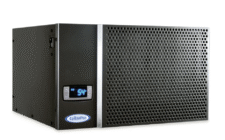In remote areas and off-grid locations, access to reliable power sources can be a challenge. However, solar energy has emerged as a game-changer, providing a sustainable and efficient solution for powering off-grid living.
Whether it’s remote cabins, RVs, or sustainable communities, solar energy offers a reliable and environmentally friendly alternative to traditional power sources.
In this article, we will explore the applications and benefits of solar energy for off-grid living.
Highlighting its role in powering remote areas with renewables.
Solar Energy: A Sustainable Solution
Solar energy harnesses the power of the sun to generate electricity. Through the use of solar panels, sunlight is converted into usable energy, providing a clean and renewable source of power. This makes it an ideal solution for off-grid living, where access to traditional electrical grids may be limited or non-existent.
By tapping into the abundant sunlight available in remote areas, solar energy offers a sustainable solution that reduces dependence on fossil fuels and minimizes environmental impact.
Off-Grid Applications: Remote Cabins and RVs
Remote cabins and RVs often serve as getaway destinations or temporary homes in off-grid locations. Solar energy systems can be installed to power these structures, providing essential electricity for lighting, appliances, and other electrical needs.
Solar panels mounted on the rooftops or installed in nearby areas capture sunlight and convert it into electricity, which can be stored in batteries for use during periods of low sunlight or at night. This allows occupants of remote cabins and RVs to enjoy the comforts of modern living without relying on traditional power sources.
Sustainable Communities: Embracing Solar Power
Sustainable communities, whether they are eco-villages, intentional communities, or rural settlements, often prioritize renewable energy sources to minimize their environmental impact. Solar energy plays a crucial role in these communities, providing a decentralized and independent power source.
By installing solar panels on rooftops, in shared spaces, or in communal solar farms, sustainable communities can generate clean energy, reduce carbon emissions, and foster self-sufficiency. Solar power enables these communities to embrace a sustainable and environmentally conscious lifestyle while promoting energy independence.
Benefits of Solar Energy for Off-Grid Living:
Reliability: Solar energy systems can provide a reliable source of power, even in remote areas with limited infrastructure. As long as there is sunlight available, solar panels can generate electricity, ensuring a consistent energy supply for off-grid living.
Cost Savings: By relying on solar energy, off-grid residents can significantly reduce or eliminate their energy bills. Once the initial installation costs are covered, solar energy is essentially free, allowing for long-term cost savings.
Environmental Impact: Solar energy is a clean and renewable energy source that produces zero greenhouse gas emissions during operation. By choosing solar power for off-grid living, individuals contribute to the global effort to combat climate change and reduce environmental pollution.
Low Maintenance: Solar energy systems require minimal maintenance, with occasional cleaning of the panels to ensure optimal performance. This makes them well-suited for off-grid living, where access to maintenance services may be limited.
What are Solar Panels?
Solar panels, also known as photovoltaic (PV) panels, are devices that convert sunlight into electricity. They are composed of multiple solar cells, typically made of silicon, which absorb photons from sunlight and generates a flow of electrons, creating a direct current (DC) electrical charge. These solar cells are interconnected to form a solar panel, and multiple panels can be combined to create a solar array.
How Do Solar Panels Work?
Solar panels work through a process called the photovoltaic effect. When sunlight hits the solar panels, the solar cells absorb the photons, which knock electrons loose from their atoms. The flow of these electrons creates an electrical current. The direct current (DC) electricity generated by the solar panels is then converted into alternating current (AC) electricity using an inverter. AC electricity is the type of electricity used to power homes and is compatible with the electrical grid. Interested in the best solar panels Costa del Sol has to offer, then look no further than us.
Pros and Cons of Solar Panels:
Pros:
Renewable Energy: Solar panels harness the power of sunlight, which is a renewable energy source. As long as the sun is shining, solar panels can generate electricity, making it a sustainable and environmentally friendly energy solution.
Cost Savings: By using solar panels, homeowners and businesses can reduce their reliance on traditional energy sources, resulting in significant cost savings on electricity bills. Solar energy can provide long-term financial benefits, especially as the cost of solar panels continues to decrease.
Environmental Impact: Solar panels produce clean energy without emitting greenhouse gases or pollutants. By using solar power, individuals and businesses can reduce their carbon footprint and contribute to mitigating climate change.
Energy Independence: Solar panels allow individuals and businesses to generate their own electricity, reducing their dependence on the electrical grid. This provides energy security and can protect against rising energy costs and power outages.
Cons:
Initial Cost: While the long-term savings are significant, the initial cost of installing solar panels can be high. However, the cost has been decreasing over the years, making solar energy more accessible to a wider range of consumers.
Weather Dependency: Solar panels require sunlight to generate electricity, so their efficiency is dependent on weather conditions. Cloudy days or shading can reduce the amount of energy produced. However, advancements in technology and the ability to store excess energy in batteries have mitigated this issue.
Space Requirement: Solar panels require ample space for installation, typically on rooftops or open areas with good sun exposure. Not all properties may have sufficient space for optimal solar panel installation.
What is Solar Battery Storage?
Solar battery storage is a technology that allows homeowners and businesses to store excess electricity generated by their solar panels for later use. Instead of sending unused electricity back to the grid, it is stored in batteries, which can be used during periods of low sunlight or in the event of a power outage. Solar battery storage systems can be integrated with solar panel installations, providing users with greater energy independence and flexibility.
Solar battery storage offers several benefits
Energy Independence: By storing excess energy, solar battery storage enables homeowners and businesses to reduce their reliance on the electrical grid. This provides a reliable backup power source, ensuring uninterrupted electricity supply during grid outages.
Time-of-Use Optimization: In regions with time-of-use electricity pricing, solar battery storage allows users to store energy when rates are low and use it during peak-demand periods when electricity rates are higher. This can result in additional cost savings on electricity bills.
Grid Support and Resilience: Solar battery storage systems can provide valuable support to the electrical grid by balancing energy supply and demand. During times of high demand, users can draw from their battery storage instead of relying solely on the grid, helping alleviate strain on the system.
Solar panels are devices that convert sunlight into electricity, providing a sustainable and clean energy source. They offer numerous benefits, including cost savings, reduced environmental impact, and energy independence.
Solar battery storage complements solar panel installations by allowing users to store excess energy for later use, providing greater flexibility and resilience. With advancing technology and decreasing costs, solar panels and solar battery storage are becoming increasingly popular as part of the transition to a greener and more sustainable energy future.
Solar energy is revolutionizing off-grid living by providing a sustainable, reliable, and cost-effective power solution. From remote cabins and RVs to sustainable communities, solar panels harness the power of the sun to generate electricity, reducing dependence on traditional power sources and minimizing environmental impact.
By embracing solar energy for off-grid living, individuals and communities can enjoy the benefits of a sustainable lifestyle, while contributing to a greener and more sustainable future.




